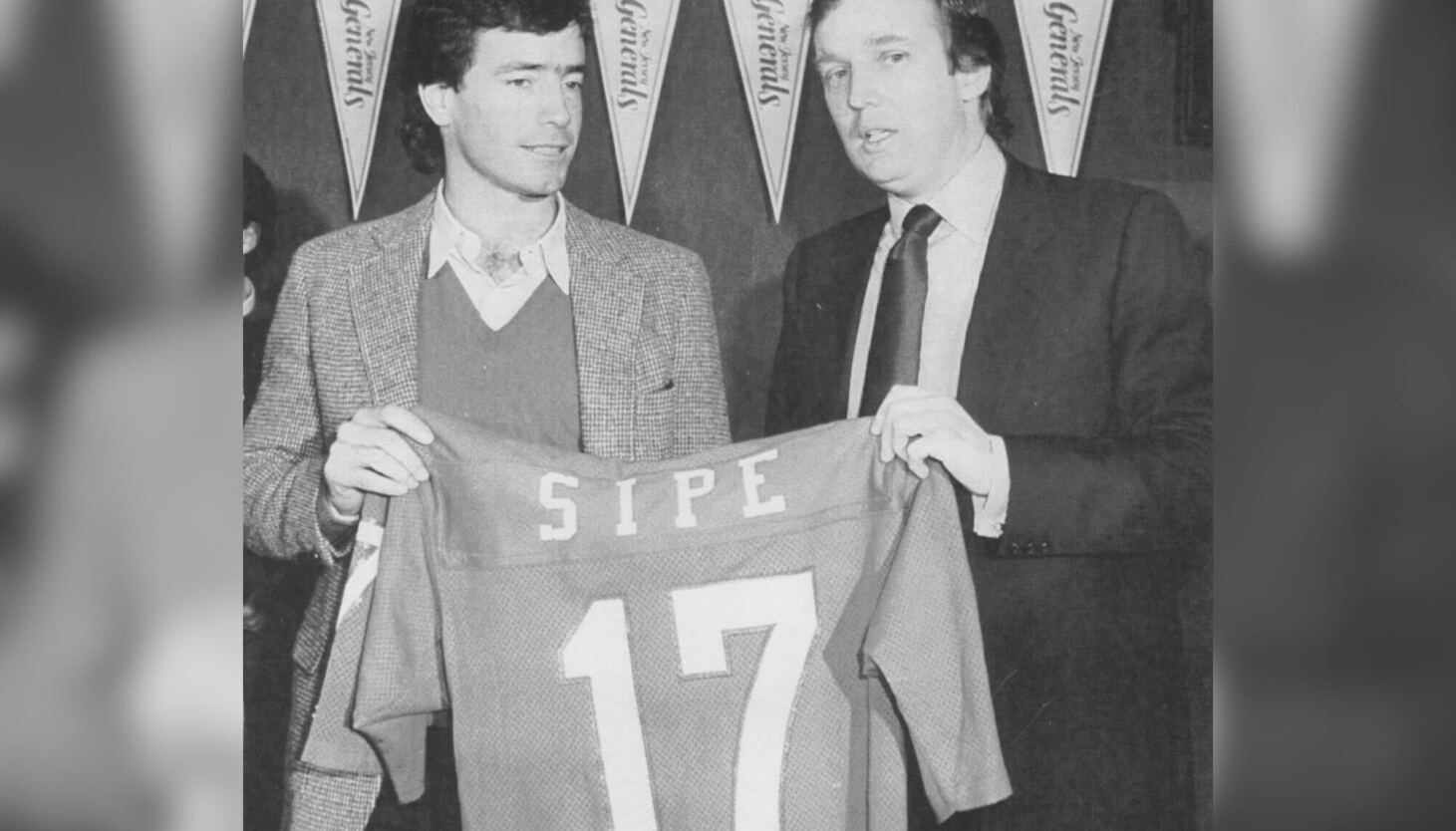Just over 40 years ago, the original United States Football League approved a radical policy change that would accelerate the league’s demise.
It essentially voted to blow itself up by competing directly with the National Football League with a head-to-head fall schedule, a move that would promptly sink the new league.
Why?
The upstart USFL began in 1983 and played in the spring and summer months when there was no football competition. It signed multiple Heisman Trophy winners and other future National Football League stars like Herschel Walker, Steve Young, Jim Kelly and Reggie White. Then it pursued a path of self-destruction. (A new USFL was formed in 2022, but was not technically the same league, and in 2024 the new one merged with another spring league, the XFL. Together they became the UFL.)
The original USFL also touched Chicago in numerous ways — via the Chicago Blitz franchise, former Bears assistant George Allen, Chicago’s Marv Levy and oil man J. Walter Duncan. But the original USFL never lasted beyond 1985. Its early star players were impressive but too costly, and then it made not one, but two spectacular blunders.
The Chicago Blitz chairman and first coach, George Allen, had close ties to the Bears and George Halas. The Blitz had several players with NFL experience, and its debut season record tied for first in its division. The Blitz signed quarterback Greg Landry and some other familiar names to Bears fans: Vince Evans, Tom Thayer and Dan Jiggetts. It even made a run at poaching Bears icon Walter Payton.
Allen had been with the Bears from 1958 through 1965, and was defensive coordinator for the 1963 championship season. He departed to become head coach of the Los Angeles Rams in 1966, which rankled Halas. Later, Allen became part owner of the Blitz along with majority owner Ted Diethrich, an acclaimed Arizona heart surgeon and entrepreneur.
After the first Blitz season, Diethrich engineered a fantastical trade with his home state Arizona Wranglers, whereby the two teams swapped virtually all their players. That, if nothing else, was the Chicago trade of the century. Nothing like it has happened before or since.
Moreover, Allen left Chicago to coach the “new” Wranglers packed with Blitz players, while the actual Blitz franchise brought in Chicagoan Marv Levy to be head coach. (Levy would later take four Buffalo Bills teams to the Super Bowl.)
Yielding to Trump
Despite its on-field successes, the USFL was bleeding money. The Los Angeles Express lured Brigham Young star Steve Young with a record-setting 10-year deal for $40 million. Oil man J. Walter Duncan, originally a Chicagoan, wanted the Blitz but wound up as an early owner of the New Jersey Generals, where he signed Heisman winner Herschel Walker to a $4.2 million deal.
To endure, the league needed money, attendance and television. Duncan sold his Generals to a young Donald Trump, who brought money and cachet, followed by a major lawsuit.
In 1984 Trump encouraged the USFL to move its schedule to the fall and take on the NFL head-to-head. An autumn television deal during the NFL season proved elusive, especially since there were only three television networks back then. That move led to another fateful decision: sue the NFL and accuse it of monopolizing television rights.
After a costly 42-day trial in 1986, the USFL did win, yet it still lost. The USFL was awarded just $1 in damages, tripled under antitrust laws to $3. Not $3 million, just $3. But the award also included the league’s legal fees, so the USFL lawyers made $5.5 million, the league collapsed and the NFL continued to thrive with Marv Levy, Steve Young, Herschel Walker and others.
Trump himself testified at the USFL trial, but he was contradicted by NFL commissioner Pete Rozelle, a copious note-taker. Trump testified that Rozelle promised him an NFL franchise. Rozelle denied it.
Witnesses to the trial said Trump was arrogant, narcissistic and unlikeable, while one annoyed juror reported that Trump had even tried to stare him down during court. Trump was never awarded an NFL team.
By overspending, moving to the fall, and suing the NFL, the USFL became a living example of cartoonist Walt Kelly’s Pogo, “We have met the enemy, and the enemy is us.”
Eldon Ham is a member of the faculty at IIT/Chicago-Kent College of Law, teaching sports, law and justice. He is the author of five books on the role of sports history in America.
The views and opinions expressed by contributors are their own and do not necessarily reflect those of the Chicago Sun-Times or any of its affiliates.
The Sun-Times welcomes letters to the editor and op-eds. See our guidelines.
Get Opinions content delivered to your inbox. Sign up for our weekly newsletter here.
